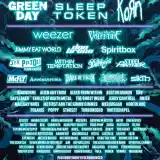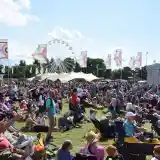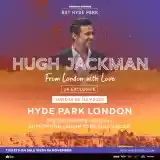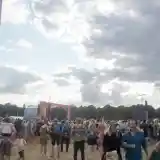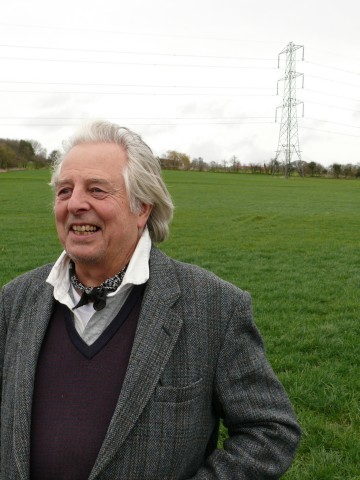
Glastonbury Festival 2011
Wednesday 22nd to Sunday 26th June 2011Worthy Farm, Pilton, Shepton Mallet, Somerset, BA4 4AZ, England MAP
£195 - SOLD OUT
Daily capacity: 175,000
To many, Andrew Kerr would perhaps be an unlikely hero, but for me, as one of the forging triumvirate of what is the greatest Festival on earth, he's up there with Michael Eavis, as a man I hold in high regard for bringing to our culture such a wonderful event, the Glastonbury Festival Of Performing Arts.

|
|
It was at that event, 40 years ago this year, that the first iconic Pyramid Stage, inspired by the Kerr's friend John Michell, was to appear, and without Kerr's great contribution, drive and enthusiasm to create that first big event at Worthy Farm, Pilton, in Somerset, it would be likely that there would be no descendent of it around today.
I rang Kerr up to speak to him last Friday, just as he had put the finishing touches to his forthcoming biography 'Intolerably Hip' and sent the fourth draft back to the publishers just the day before. I asked the softly spoken Somerset resident if I could possibly interview him, and he graciously agreed. I didn't tell him I'd been building the courage to make the call for the last 24 hours, and tried not to get too nervous speaking to such a luminary of the festival scene. Kerr started to write the book back in January 2007, and it tells the story of his life, from his birth until now, "I'm not dead, as you may have noticed" he adds wryly. For those interested in the history of Glastonbury Festival or even for those going this year, the book is a worthy read about the man who put on the event of 1971. "That was the first large Glastonbury Festival. I was getting a bit fed up with the commercialism of the festivals like the Isle Of Wight, I understood there was a bit of corruption going on. And so I thought, well, we'll have to have a free festival where everybody gives, and it worked."
Kerr and the other organisers didn't have a lot of money, and managed to persuade all the bands to play for free on the Pyramid stage they had erected. It was the first of the Pyramid stages that have graced the Festival as the main stage and iconic focus point over the years. The organisation was, Kerr tells me, quite chaotic, but it worked through the community of the people who came. "Everyone mucked in," Kerr remembers, "If something needed doing then it was probably done."
The '71 Fair's running costs were also far less than they are today, and organisers had no idea of the number of people who would come to the event held over the Summer Solstice . "Because there wasn't any security or anything, the gates were opened and people just arrived. The estimates of how many people came were twelve to fifteen thousand people." Kerr's memories of the event are hazy, but for him it was the fact that it happened at all that he treasures. "It was remarkable, it really was. Can you imagine something like that happening nowadays?"
Kerr, was helped in the staging of Glastonbury Fair, by Arabella Churchill, who joined him to assist him do it, and he had agreed with farm owner Michael Eavis to borrow his farm from him. Kerr takes up the story, "I rented the farm house, and he (Eavis) didn't have anything to do with the organisation of the festival that year. It was entirely down to us. Arabella joined me in February 1971, and I had moved into the farmhouse the previous October, that's when I started trying to get the thing together."
Any festival boss will tell you that festivals take a great deal of organising, and the Fair was no exception. "People came to the farm and talked about it. People had heard about it, and it was all word of mouth. We had no idea who was going to turn up, it may have been nobody, we didn't know. There was just no way to tell. Then the press started to get interested, and there was one or two little stories in The Observer or The Guardian, I can't remember which. The local press were obviously quite interested, and the villagers. Some of them were rather sceptical, and some were pleased. It's quite a thing to invade a quiet Somerset village, when a whole load of hippies come out of the cities."
Kerr wasn't responsible for the organising of the first Pyramid stage's running. He had no professional experience, and had previously been employed as personal assistant to Randolph Spencer Churchill, son of Sir Winston, to assist in his writing of his father's biography. So, instead Kerr secured the services of Jeff Dexter, who promoted gigs in London at the Speakeasy, UFO Club, and The Roundhouse, and at that time used to DJ and play the part of host at festivals
Kerr explains, "I got to know him, and I said, "Look we're going to do this thing, will you get some bands to play?" And he and John Coleman got this line-up together. I've got this list of the bands, 49 of them played, all at their own expense. Some came from Brazil, and the States, and some people came from Australia, and the French turned up. Everybody turned up! I don't know why, because there was no publicity. It was all done by words of mouth." Performers who appeared included Brinsley Schwarz, David Bowie, Edgar Broughton Band, Fairport Convention, Hawkwind, Melanie, and Traffic. Kerr informs me that, "Hendrix had agreed to play the event, but unfortunately he died the day after he made the promise. We had his last film, 'Rainbow Bridge' that was shown at the festival, so he was there in a kind of way."
At the beginning, Festivals on the farm weren't annual events, and Eavis has always kept the fact it's a working farm at the top of his priorities. As Kerr details, "After that he (Eavis) didn't have a Festival for quite a long time. I returned in 1978 when there was a spontaneous free festival there, and then I helped him do the Wagon Shed gigs in '80. Arabella and some other people had put on a festival in '79, and I helped Michael when he applied for a licence in 1981."
Kerr has been a regular visitor of the event as it's grown over the years. In 1981 when Kerr helped with the event it attracted around 18,000 people, and he has been pretty much every year, and was the site manager from 1981 until 1987 when the event attracted 60,000 revellers. "It's very big (now). It got too big. It was time for the professionals to come in, I'm not a professional site manager. I thought it was too big in 1971, so you can imagine what I think about it now. It's still there to celebrate the summer solstice, and that was the main reason."
The Festival also stays as true as possible to Kerr's original aim of the Festival that of being rooted in green issues, to try to conserve natural resources, to respect life and to awaken the spirit. Tenets that the Festival has always led the way, and still does, in bringing to great gatherings and shared experiences. Although the festival now becomes home to 177,000 people, with many more than that hoping for a ticket each year. At £195 a ticket it's become a very different beast, to Kerr's free event, and that's something the co-founder's aware of, "The hits they have on trying to get tickets these days, it's phenomenal. The festival is very much over subscribed now, but the site won't take anymore people."
Of course the festival still does disrupt the life of the village, even more so today, but one of the great benefits of the Festival 40 years on is the amount of money that it generates in the area. It's something Kerr's keen to point out, "Michael gives a fantastic amount of money to his chosen charities like Water Aid, and Oxfam and people like that. And also, quite independent of the Festival, because the event is happening, I've seen a figure of £73 million comes into Somerset these days, as a benefit to the local community, that can't be bad can it?"
Kerr still likes to visit other festivals, and last year he was invited to Port Eliot's Literary Fest for a Q&A Session. "It was quite a funny set up," remembers Kerr, "They had little stages all over the place, it's more intimate. I think that's much nicer. It was an incredibly hot day, and I was on this small stage. Most of the people were under a tree nearby because it was so hot, and I was interviewed by a chap called Jason Goodwin, who is a very good author. He asked me questions, and I answered them."
I ask him if he intends to do anything like that at Glastonbury this year. "Yes, because Michael's kindly allowed me to have a stage, near the Glade stage. We're helped in this by Luke Piper, who manages the whole thing. I'm working with him to have a smaller low key stage, called 'The Spirit of '71' Stage. Where there will be talks, and acoustic music, and things like that. It's going to be right next door to the Glade and faces the other way. It's where Tony Andrews had his FunktionOne Soundsystem last year. Tony did the sounds in 1971 for me, and he's going to do it again this year. I'm getting some of the old crowd back together."
Asked if any of the acts for the stage are booked yet, Kerr says he won't reveal that until later, but expects to announce it on the Festival's website in late April or early May. I tell him that I wonder if they'll play for free. Kerr laughs, "They'll have to won't they, there isn't any money, and of course some of them have become quite well known, and so we're not expecting them to turn up. David Bowie - I'd don't suppose would do it, would he? And if he did, it would be a bloody nuisance because of the crowd. I don't know what's going to happen yet, it's all so exciting!"
The book's focus isn't the Festival however, it reveals Kerr's varied and interesting life from a farming childhood in the 1940s, through various jobs to his meetings with all sorts of characters, from rock, music lovers, crofters and druids to influential people, world statesmen, royalty, trillionaires and bloodthirsty generals. For a better idea of the man and his life I'd like to quote Nick Baker, in his book 'Groovy Old Men', who described Kerr thus, "Andrew Kerr has been a Gardener, Minicab Driver, Sailor, Farmer, TV Researcher and Festival Starter. He has met Jimi Hendrix, Princess Margaret, Winston Churchill and the Grateful Dead. He can build dry stone walls, shear sheep and navigate sea going vessels. He is enthusiastic about numerology and ley lines. For someone who was in at the start of the green movement he doesn't bang on about it."
Kerr doesn't yet know the publication date, as originally it was thought a good idea to publish it at the Festival. Kerr didn't think this such a good idea, "Everybody is more interested in bands than a book. People don't buy a lot of books at a Festival, what with the mud and so on, it's not very nice for the publishers to come down with a load of books and get them muddy, then they can't sell them." There are one or two places at Festival that could potentially sell the book. The Speaking Tree from Glastonbury have a stall there, and Kerr will have some available himself, "If people want a signed copy, I'll have them on site, but not that many." The author would prefer it if the book was published before the Festival, so that people will have heard of it, bought copies, and even read the book before they go to this year's Festival. "I think that's the best idea, whether that will happen or not, is in the hands of Frontier Publishing near Norwich."
The storyteller himself describes the book, not surprisingly, as "quite a romp actually, I've quite enjoyed doing it, it has got it's moments of sadness but it is a whole life." The book does contain anecdotal tales from his experiences, and the writer felt that he didn't feel it was necessary to go too much into the detail of the history of the Festival. Kerr points out that he feels that has already been covered by Crispin Aubrey & John Shearlaw's book 'Glastonbury Festival Tales'. He won't reveal what the stories he tells in the book are, to find out, you will have to buy the book.
'Intolerably Hip' by Andrew Kerr is published soon by Frontier Publishing priced at £14 - ISBN: 978 1872914 49 7
Andrew Kerr has agreed to let eFestivals offer our readers the chance to win a signed copy of his book, and eFestivals will have the competition online soon.
interview by: Scott Williams
Latest Updates
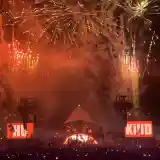 Glastonbury Festival 2025
Glastonbury Festival 2025festival details
last updated: Thu 14th Nov 2024
 Glastonbury Festival 2025
Glastonbury Festival 2025line-ups & rumours
last updated: Thu 14th Nov 2024
 Glastonbury Festival
Glastonbury Festivalfestival home page
last updated: Fri 11th Oct 2024
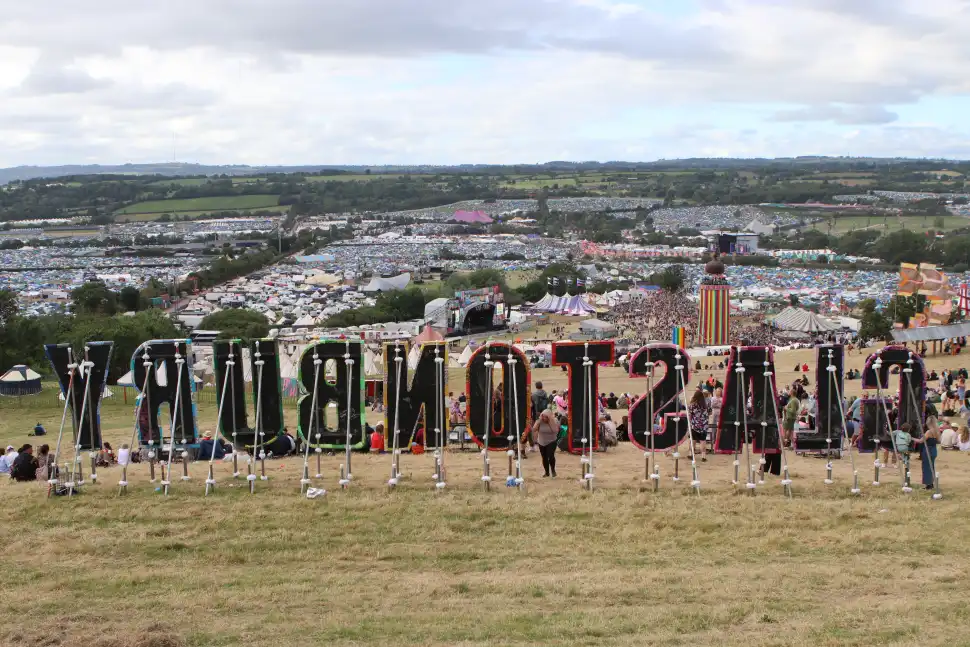 Glastonbury Announces Ticket Sale Dates For 2025 Festival
Glastonbury Announces Ticket Sale Dates For 2025 FestivalTickets will go on sale mid-November, with small price increase
last updated: Fri 11th Oct 2024
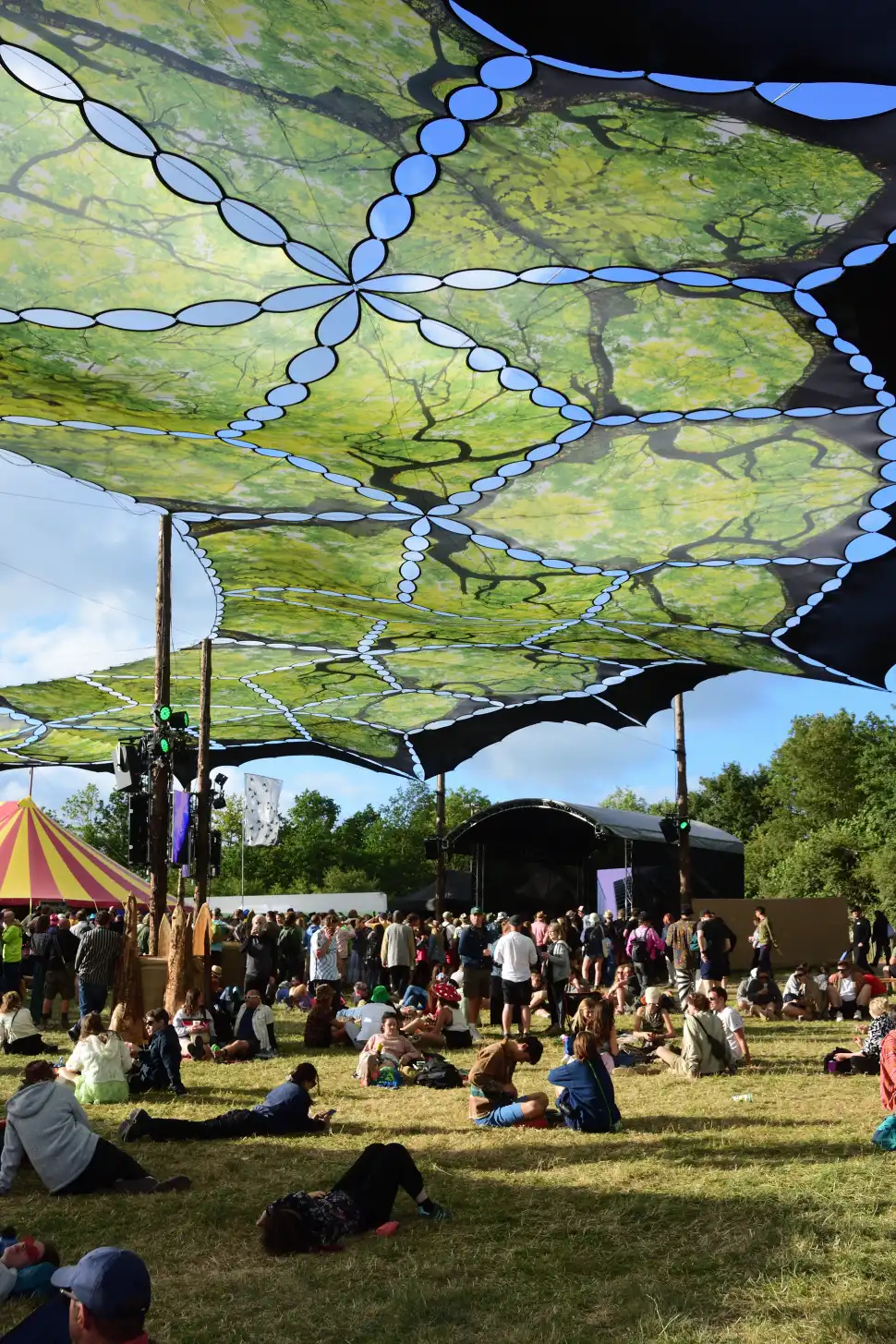 Glastonbury Festival 2024 small stages Review
Glastonbury Festival 2024 small stages ReviewGlastonbury - the Other Side of the Tracks
last updated: Wed 10th Jul 2024

